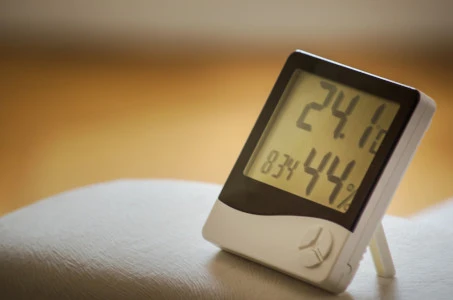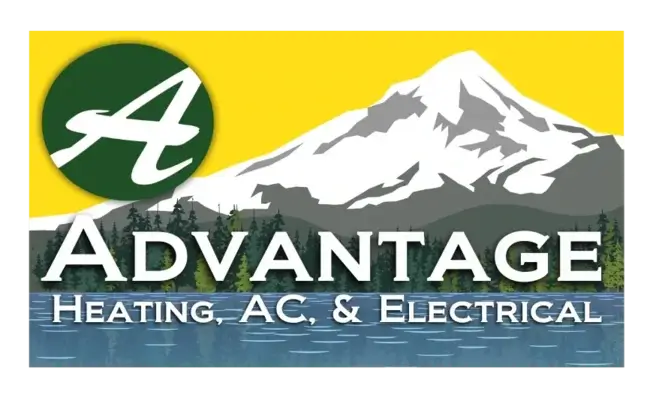5 Reasons Why You Need A Variable Speed Heat Pump (And 2 Reasons Why You Don’t)
Did you know that HVAC equipment that goes slower can save you money? Not only that, but it can also make your home more comfortable. A variable speed heat pump can do all that just because it can go slower.
In this post, we’ll explain what a variable speed heat pump is and how it can benefit you. At the end, we’ll also go over some downsides that could influence your decision.
What Is A Variable Speed Heat Pump
A variable speed heat pump transfers heat the same way that a single stage one would. What makes it different is that it can operate at multiple speeds, like the name implies. That means it can run slower than a single speed heat pump.
Being able to work at slower speeds has some huge benefits. In the rest of this post, we’ll give five huge benefits you can get from a variable speed heat pump.
1. More Energy Efficient
A variable speed heat pump will run slower for longer cycles. That is actually more energy efficient than a single stage heat pump.
A single stage heat pump is either on at 100% or off. That means that once your thermostat detects a change in temperature, your heat pump will turn on at full power and shoot air throughout your home at full speed and then turn back off.
Compare this to a variable speed heat pump. When it turns on, it will pump air into your home at a slower speed, and can stay on to make small adjustments, maintaining temperature in your home.
The Department of Energy has found that HVAC equipment uses the most energy when it turns on. That means that fewer cycles that go for a longer time use less energy than multiple short cycles.
Lower Energy Bill
By using less energy, a variable speed heat pump can lower your monthly energy bill. Heat pumps are already a great energy efficient option. By using the most efficient equipment, you will minimize energy usage, and maximize savings.

2. More Consistent Comfort
Another benefit of a variable speed heat pump being able to work at different speeds is that it does not overheat or over cool your home like a single speed heat pump can.
Because a single speed heat pump turns on at 100%, it can pump too much hot or cold air into your home when it only needs to make a minor correction. If you only have one thermostat in your home, it can also pump too much into side rooms that are already too hot or too cold. Since there’s no thermostat in those side rooms, there is nothing to tell the heat pump to not send air.
A variable speed system can make minor adjustments with ease. This means that it will not change the temperature in your home by more than it needs to.
Because it can slowly change the temperature in your home, it will also give time for air from those side rooms to circulate. This can cause more even temperatures in your home.
3. Reduce Indoor Humidity
Keep in mind, this only works in cooling mood. When a heat pump is in heating mode, it will not reduce humidity.
By circulating air in your home over a longer period, a variable speed heat pump will help to dehumidify your home. Air movement is key to keep humidity levels low. A single speed heat pump that works for short cycles will not do as well at keeping humidity levels low, because it will not circulate air for as long.

4. Quieter
A variable speed heat pump can also be quieter than a single speed heat pump simply because of the machinery working slower. If your home lets lots of noise in, then your HVAC system can be distracting when it comes on. If you’re sensitive to loud noises, then your system may have even woken you up in the middle of the night.
A quieter heat pump can help save your sleep or family movie night by not whooshing air into your home all at once.
5. More Air Filtering
This is a benefit that few people think about. Because your heat pump is working slower over a longer period, it’s moving more air through the air filter. This means your HVAC system will have more time to remove allergens, dust, pet dander, and other particles from the air.
Downsides of a Variable Speed Heat Pump
Like with anything, there are cons to weigh against the pros. There are two major things you need to consider before committing to your new heat pump.
1. Doesn’t Work With Uninsulted Ducts
If your ducts are uninsulated, then they could leak heat. When your heat pump is working slower, this becomes much more noticeable and the temperature of the air being pumped into your home can be affected.
However, this problem should only affect homes with older ductwork. If your home has modern flexible ductwork, then it should already be fully insulated.
Alternatively, if your heat pump is part of a ductless system, then it’s a non-issue.
2. Costs More Than Single Stage
Naturally, the more efficient technology costs more than the less efficient counterpart. As technology continues to advance and production methods continue to get refined, this may change. At this moment, just be aware that you may have to make a large investment to have a variable speed heat pump installed.
Who Are Advantage Heating and Air Conditioning, LLC?
We are your local HVAC Experts out of Salem, Oregon. We hope that this post gave you the information you need to decide if a variable speed heat pump is right for you. If you have other questions about HVAC systems, check out our other blogs. To learn more about who we are and how we can help you, visit our website and follow us on social media – we’re here when you need us!







